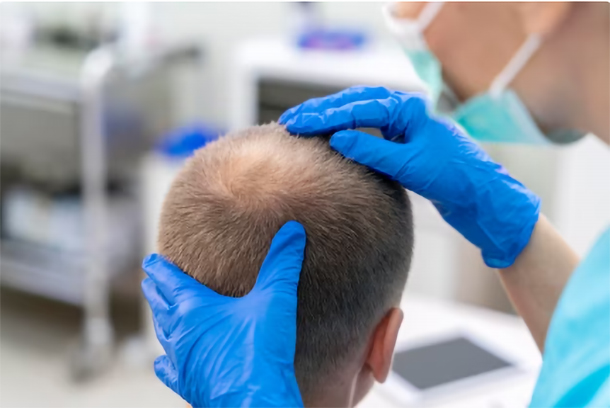Nutrition plays a crucial role in maintaining healthy hair. Here are some essential nutrients that contribute to hair health:
Protein: Hair is primarily composed of a protein called keratin. Ensuring an adequate intake of protein in your diet is essential for hair growth and strength. Good sources of protein include lean meats, poultry, fish, eggs, dairy products, legumes, nuts, and seeds.
Biotin: Biotin, also known as vitamin B7, is essential for healthy hair growth. It helps in the synthesis of keratin and can be found in foods like eggs, nuts, whole grains, and cauliflower.
Iron: Iron deficiency can lead to hair loss. Iron is necessary for the proper oxygenation of the scalp and hair follicles. Include iron-rich foods such as red meat, spinach, lentils, and tofu in your diet.
Zinc: Zinc plays a role in hair tissue growth and repair. It helps to keep the oil glands around the hair follicles functioning properly. Foods rich in zinc include oysters, beef, pumpkin seeds, and lentils.
Vitamin C: Vitamin C is an antioxidant that helps protect hair follicles from damage. It also aids in the absorption of iron from plant-based sources. Citrus fruits, strawberries, kiwi, and bell peppers are excellent sources of vitamin C.
Omega-3 Fatty Acids: These healthy fats help nourish the hair and support scalp health. They can be found in fatty fish (like salmon and mackerel), flaxseeds, chia seeds, and walnuts.
Vitamin A: Vitamin A helps in the production of sebum, which is a natural conditioner for the scalp. It can be found in sweet potatoes, carrots, spinach, and kale.
Vitamin E: Vitamin E is an antioxidant that promotes blood circulation and helps maintain a healthy scalp. Nuts, seeds, and vegetable oils are good sources of vitamin E.
Selenium: Selenium is involved in the synthesis of selenoproteins, which have antioxidant properties that may help protect the hair follicles. Brazil nuts, fish, and whole grains are sources of selenium.
Silica: Silica is a trace mineral that contributes to hair strength and luster. It can be found in oats, rice, and leafy greens.
Remember that a balanced and varied diet is essential for overall health, including hair health. If you suspect a nutrient deficiency or experience excessive hair loss, it’s best to consult a healthcare professional or a registered dietitian to determine the underlying cause and receive appropriate guidance. Dietary supplements should only be taken under the supervision of a qualified healthcare provider, as excessive intake of certain nutrients can also have adverse effects.



